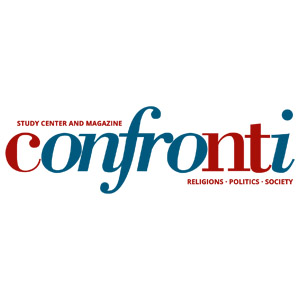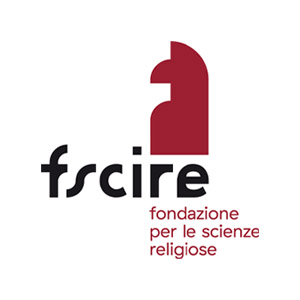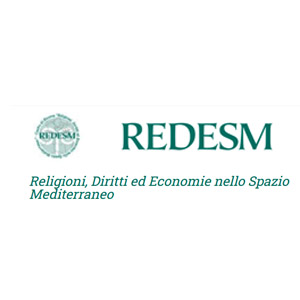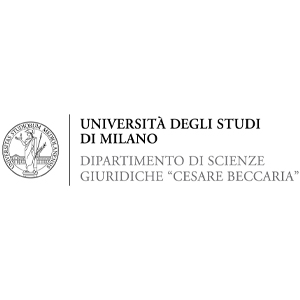COMPARATIVE TABLES

The comparative tables show the responses provided by national legal experts to the questionnaire devoted to marriage and family.
ReMinEm_Marriage&Family_Comparative Table
MiReDiaDe_Marriage&Family_Comparative Table
INTERNATIONAL STANDARDS

Right to marry and found a family
Universal Declaration of Human Rights
Art. 16(1): “Men and women of full age, without any limitation due to race, nationality or religion, have the right to marry and to found a family. […]”.
International Covenant on Civil and Political Rights*
Art. 23(2): “The right of men and women of marriageable age to marry and to found a family shall be recognized”.
*Egypt entered a general reservation upon ratification of the ICCPR: “[...] Taking into consideration the provisions of the Islamic Sharia and the fact that they do not conflict with the text annexed to the instrument, we accept, support and ratify it [...]”.
Arab Charter on Human Rights
Art. 33(1): “[…]. Men and women of marrying age have the right to marry and to found a family according to the rules and conditions of marriage. […]”.
European Convention on Human Rights
Art. 12: “Men and women of marriageable age have the right to marry and to found a family, according to the national laws governing the exercise of this right”.
Protection of family
Universal Declaration of Human Rights
Art. 16(3): “The family is the natural and fundamental group unit of society and is entitled to protection by society and the State”.
International Covenant on Economic, Social and Cultural Rights
Art. 10(1): “The widest possible protection and assistance should be accorded to the family, which is the natural and fundamental group unit of society, particularly for its establishment and while it is responsible for the care and education of dependent children”.
African Charter on Human and Peoples' Rights
Art. 18(1): “The family shall be the natural unit and basis of society. It shall be protected by the State which shall take care of its physical health and moral”.
African Charter on the Rights and Welfare of the Child
Art. 18(1): “The family shall be the natural unit and basis of society. It shall enjoy the protection and support of the State for its establishment and development”.
Arab Charter on Human Rights
Art. 33(1-2): “The family is the natural and fundamental group unit of society; it is based on marriage between a man and a woman. […].
The State and society shall ensure the protection of the family, the strengthening of family ties, the protection of its members and the prohibition of all forms of violence or abuse in the relations among its members, and particularly against women and children. […]”.
Celebration and validity of civil and religious marriage
UN Human Rights Committee. CCPR General comment No. 19
No. 4: “the right to freedom of thought, conscience and religion implies that the legislation of each State should provide for the possibility of both religious and civil marriages. In the Committee's view, however, for a State to require that a marriage, which is celebrated in accordance with religious rites, be conducted, affirmed or registered also under civil law is not incompatible with the Covenant”.
European Court of Human Rights
Şerife Yığıt v. Turkey [Grand Chamber], application no. 3976/05, 2 November 2010
Guide on Article 9 to the European Convention on Human Rights
No. 174: “Article 9 § 1 of the Convention does not go so far as to require Contracting States to grant religious marriages equal status and equal legal consequences to civil marriage […]”.
Guide on Article 12 to the European Convention on Human Rights
Nos. 6-8: “When it comes to the procedural limitations, States can require marriage to be contracted as a civil marriage, but they are free to recognize religious marriage according to their national laws.
7. […] An obligation to contract a marriage in accordance with forms prescribed by law rather than a particular religious ritual is not a refusal of the right to marry […].
8. At the same time, States remain free to exercise discretion to recognise a religious marriage. […]”.
Rites to enter a religious community
UN Human Rights Committee. CCPR General comment No. 22
No. 4: “The freedom to manifest religion or belief may be exercised “either individually or in community with others and in public or private”. The freedom to manifest religion or belief in worship, observance, practice and teaching encompasses a broad range of acts. The concept of worship extends to ritual and ceremonial acts giving direct expression to belief, as well as various practices integral to such acts, […]. The observance and practice of religion or belief may include not only ceremonial acts but also such customs as […] participation in rituals associated with certain stages of life […]”.
Inheritance and dowry
Convention on the Elimination of All Forms of Discrimination against Women
Art. 15(2): “States Parties shall accord to women, in civil matters, a legal capacity identical to that of men and the same opportunities to exercise that capacity. In particular, they shall give women equal rights to conclude contracts and to administer property […]”.
Art. 16(1)*: “States Parties shall take all appropriate measures to eliminate discrimination against women in all matters relating to marriage and family relations and in particular shall ensure, on a basis of equality of men and women: […] (h) The same rights for both spouses in respect of the ownership, acquisition, management, administration, enjoyment and disposition of property, whether free of charge or for a valuable consideration”.
*Egypt has entered a reservation concerning the equality of men and women in all matters relating to marriage and family relations during the marriage and upon its dissolution, without prejudice to the Islamic Sharia's provisions whereby women are accorded rights equivalent to those of their spouses so as to ensure a just balance between them. This is out of respect for the sacrosanct nature of the firm religious beliefs which govern marital relations in Egypt and which may not be called in question and in view of the fact that one of the most important bases of these relations is an equivalency of rights and duties so as to ensure complementary which guarantees true equality between the spouses. The provisions of the Sharia lay down that the husband shall pay bridal money to the wife and maintain her fully and shall also make a payment to her upon divorce, whereas the wife retains full rights over her property and is not obliged to spend anything on her keep. The Sharia therefore restricts the wife's rights to divorce by making it contingent on a judge's ruling, whereas no such restriction is laid down in the case of the husband.
UN Human Rights Committee. CCPR General comment No. 28
No. 19: “The right of everyone under article 16 to be recognized everywhere as a person before the law is particularly pertinent for women, who often see it curtailed by reason of sex or marital status. This right implies that the capacity of women to own property, to enter into a contract or to exercise other civil rights may not be restricted on the basis of marital status or any other discriminatory ground. It also implies that women may not be treated as objects to be given, together with the property of the deceased husband, to his family. States must provide information on laws or practices that prevent women from being treated or from functioning as full legal persons and the measures taken to eradicate laws or practices that allow such treatment”.
European Court of Human Rights
Molla Sali v. Greece [Grand Chamber], application no. 20452/14, 19 December 2018
No. 157: “Refusing members of a religious minority the right to voluntarily opt for and benefit from ordinary law amounts not only to discriminatory treatment but also to a breach of a right of cardinal importance in the field of protection of minorities, that is to say the right to free self-identification”.
Women’s rights
Universal Declaration of Human Rights
Preamble: “[…] Whereas the peoples of the United Nations have in the Charter reaffirmed their faith […] in the equal rights of men and women”.
Art. 16(1): “Men and women […] are entitled to equal rights as to marriage, during marriage and at its dissolution”.
International Covenant on Civil and Political Rights
Art. 23(4): “States Parties to the present Covenant shall take appropriate steps to ensure equality of rights and responsibilities of spouses as to marriage, during marriage and at its dissolution”.
UN Human Rights Committee. CCPR General comment No. 28
No. 13: “States parties should provide information on any specific regulation of clothing to be worn by women in public. The Committee stresses that such regulations may involve a violation of a number of rights guaranteed by the Covenant, such as: article 26, on non-discrimination; article7, if corporal punishment is imposed in order to enforce such a regulation; article 9, when failure to comply with the regulation is punished by arrest; article 12, if liberty of movement is subject to such a constraint; article 17, which guarantees all persons the right to privacy without arbitrary or unlawful interference; articles 18 and 19, when women are subjected to clothing requirements that are not in keeping with their religion or their right of self-expression; and, lastly, article 27, when the clothing requirements conflict with the culture to which the woman can lay a claim”.
Convention on the Elimination of All Forms of Discrimination against Women
Art. 2*: “States Parties condemn discrimination against women in all its forms, agree to pursue by all appropriate means and without delay a policy of eliminating discrimination against women […]”.
*Egypt has entered a reservation that it is willing to comply with the content of this article, provided that such compliance does not run counter to the Islamic Sharia.
Art. 5: “States Parties shall take all appropriate measures: […] (b) To ensure that family education includes a proper understanding of maternity as a social function and the recognition of the common responsibility of men and women in the upbringing and development of their children, it being understood that the interest of the children is the primordial consideration in all cases”.
Art. 16(1)*: “States Parties shall take all appropriate measures to eliminate discrimination against women in all matters relating to marriage and family relations and in particular shall ensure, on a basis of equality of men and women:
(a) The same right to enter into marriage;
(b) The same right freely to choose a spouse and to enter into marriage only with their free and full consent;
(c) The same rights and responsibilities during marriage and at its dissolution;
(d) The same rights and responsibilities as parents, irrespective of their marital status, in matters relating to their children; in all cases the interests of the children shall be paramount; […]
(f) The same rights and responsibilities with regard to guardianship, wardship, trusteeship and adoption of children, or similar institutions where these concepts exist in national legislation; in all cases the interests of the children shall be paramount;
(g) The same personal rights as husband and wife, including the right to choose a family name, a profession and an occupation; […]”.
*Egypt has entered a reservation concerning the equality of men and women in all matters relating to marriage and family relations during the marriage and upon its dissolution, without prejudice to the Islamic Sharia's provisions whereby women are accorded rights equivalent to those of their spouses so as to ensure a just balance between them. This is out of respect for the sacrosanct nature of the firm religious beliefs which govern marital relations in Egypt and which may not be called in question and in view of the fact that one of the most important bases of these relations is an equivalency of rights and duties so as to ensure complementary which guarantees true equality between the spouses. The provisions of the Sharia lay down that the husband shall pay bridal money to the wife and maintain her fully and shall also make a payment to her upon divorce, whereas the wife retains full rights over her property and is not obliged to spend anything on her keep. The Sharia therefore restricts the wife's rights to divorce by making it contingent on a judge's ruling, whereas no such restriction is laid down in the case of the husband.
Lebanon has entered a reservation regarding article 16(1) (c) (d) (f) and (g) (regarding the right to choose a family name).
On 26 June 1998, the Secretary-General received from the Government of Denmark the following communication with regard to the reservation made by Lebanon upon accession in respect of […] article 16, paragraph 1 c), d), f) and g) in as much as the last paragraph deals with the right to choose a family name. The Government of Denmark is of the view that the reservations made by the Government of Lebanon raise doubts as to the commitment of Lebanon to the object and purpose of the Convention and would recall that, according to article 28, paragraph 2 of the Convention, a reservation incompatible with the object and purpose of the present Convention shall not be permitted. For this reason, the Government of Denmark objects to the said reservations made by the Government of Lebanon. The Government of Denmark recommends the Government of Lebanon to reconsider their reservations to [the Covenant].
African Charter on Human and Peoples' Rights
Art. 18(3)*: “The State shall ensure the elimination of every discrimination against women and also ensure the protection of the rights of women and the child as stipulated in international declarations and conventions”.
*Egypt entered a reservation that “paragraph 3 of article 18 be implemented in accordance with the Islamic Law”.
African Charter on the Rights and Welfare of the Child
Art. 18(2): “States Parties to the present Charter shall take appropriate steps to ensure equality of rights and responsibilities of spouses with regard to children during marriage and in the event of its dissolution. […]”. https://www.achpr.org
Arab Charter on Human Rights
Art. 3(3): “Men and women are equal in respect of human dignity, rights and obligations within the framework of the positive discrimination established in favour of women by the Islamic Shariah, other divine laws and by applicable laws and legal instruments. Accordingly, each State party pledges to take all the requisite measures to guarantee equal opportunities and effective equality between men and women in the enjoyment of all the rights set out in this Charter”.
Art. 33(1-2): “[…]. The laws in force regulate the rights and duties of the man and woman as to marriage, during marriage and at its dissolution.
The State and society shall ensure the protection of the family, the strengthening of family ties, the protection of its members and the prohibition of all forms of violence or abuse in the relations among its members, and particularly against women and children. They shall also ensure the necessary protection and care for mothers […]”.
Art. 41(3): “The States parties shall take appropriate measures in all domains to ensure partnership between men and women with a view to achieving national development goals”.
Art. 43: “Nothing in this Charter may be construed or interpreted as impairing the rights and freedoms protected by the domestic laws of the States parties or those set force in the international and regional human rights instruments which the states parties have adopted or ratified, including the rights of women, the rights of the child and the rights of persons belonging to minorities”.
Children’s rights
Convention on the Rights of the Child
Art. 30: “In those States in which ethnic, religious or linguistic minorities or persons of indigenous origin exist, a child belonging to such a minority or who is indigenous shall not be denied the right, in community with other members of his or her group, to enjoy his or her own culture, to profess and practise his or her own religion, or to use his or her own language”.
Declaration of the General Assembly on the Elimination of All Forms of Intolerance and of Discrimination Based on Religion or Belief
Art. 5(3, 5): “The child shall be protected from any form of discrimination on the ground of religion or belief. He shall be brought up in a spirit of understanding, tolerance, friendship among peoples, peace and universal brotherhood, respect for freedom of religion or belief of others, and in full consciousness that his energy and talents should be devoted to the service of his fellow men.
Practices of a religion or belief in which a child is brought up must not be injurious to his physical or mental health or to his full development, taking into account article 1, paragraph 3, of the present Declaration”.
African Charter on Human and Peoples' Rights
Art. 18(3)*: “The State shall ensure the elimination of every discrimination against women and also ensure the protection of the rights of women and the child as stipulated in international declarations and conventions”.
*Egypt entered a reservation that “paragraph 3 of article 18 be implemented in accordance with the Islamic Law”.
African Charter on the Rights and Welfare of the Child
Art. 18(2): “States Parties to the present Charter shall take appropriate steps to ensure equality of rights and responsibilities of spouses with regard to children during marriage and in the event of its dissolution. In case the dissolution, provision shall be made for the necessary protection of the child”.
Arab Charter on Human Rights
Art. 33(2-3): “The State and society shall ensure the protection of the family, the strengthening of family ties, the protection of its members and the prohibition of all forms of violence or abuse in the relations among its members, and particularly against women and children. They shall also ensure the necessary protection and care for […] children […] and shall provide adolescents and young persons with the best opportunities for physical and mental development.
The States parties shall take all necessary legislative, administrative and judicial measures to guarantee the protection, survival, development and well-being of the child in an atmosphere of freedom and dignity”.
Art. 43: “Nothing in this Charter may be construed or interpreted as impairing the rights and freedoms protected by the domestic laws of the States parties or those set force in the international and regional human rights instruments which the states parties have adopted or ratified, including the rights of women, the rights of the child and the rights of persons belonging to minorities”.
Parents’ right to educate children
Universal Declaration of Human Rights
Art. 26(3): “Parents have a prior right to choose the kind of education that shall be given to their children”.
International Covenant on Civil and Political Rights
Art. 18(4): “The States Parties to the present Covenant undertake to have respect for the liberty of parents and, when applicable, legal guardians to ensure the religious and moral education of their children in conformity with their own convictions”.
International Covenant on Economic, Social and Cultural Rights
Art. 13(3): “The States Parties to the present Covenant undertake to have respect for the liberty of parents and, when applicable, legal guardians to [...] ensure the religious and moral education of their children in conformity with their own convictions”.
Convention on the Rights of the Child
Art. 14(2): “States Parties shall respect the rights and duties of the parents and, when applicable, legal guardians, to provide direction to the child in the exercise of his or her right in a manner consistent with the evolving capacities of the child [...]”.
Art. 29(1): “States Parties agree that the education of the child shall be directed to: […] c) The development of respect for the child's parents, his or her own cultural identity, language and values, for the national values of the country in which the child is living, the country from which he or she may originate, and for civilizations different from his or her own”.
Declaration of the General Assembly on the Elimination of All Forms of Intolerance and of Discrimination Based on Religion or Belief
Art. 5(1-2, 4): “The parents or, as the case may be, the legal guardians of the child have the right to organize the life within the family in accordance with their religion or belief and bearing in mind the moral education in which they believe the child should be brought up.
Every child shall enjoy the right to have access to education in the matter of religion or belief in accordance with the wishes of his parents or, as the case may be, legal guardians, and shall not be compelled to receive teaching on religion or belief against the wishes of his parents or legal guardians, the best interests of the child being the guiding principle.
In the case of a child who is not under the care either of his parents or of legal guardians, due account shall be taken of their expressed wishes or of any other proof of their wishes in the matter of religion or belief, the best interests of the child being the guiding principle”.
African Charter on the Rights and Welfare of the Child
Art. 9(2-3): “Parents, and where applicable, legal guardians shall have a duty to provide guidance and direction in the exercise of these rights having regard to the evolving capacities, and best interests of the child.
States Parties shall respect the duty of parents and where applicable, legal guardians to provide guidance and direction in the enjoyment of these rights subject to the national laws and policies.”.
Art. 11(4): “States Parties to the present Charter shall respect the rights and duties of parents, and where applicable, of legal guardians to choose for their children schools, other than those established by public authorities, which conform to such minimum standards as approved by the state, to ensure the religious and moral education of the child in a manner consistent with the evolving capacities of the child”.
Arab Charter on Human Rights
Art. 30(3): “Parents or guardians have the freedom to provide for the religious and moral education of their children”.
European Convention on Human Rights
Art. 2 of Protocol No. 1: “[…]. In the exercise of any functions which it assumes in relation to education and to teaching, the State shall respect the right of parents to ensure such education and teaching in conformity with their own religious and philosophical convictions”.
Child marriage
Convention on the Elimination of All Forms of Discrimination against Women
Art. 16(2): “The betrothal and the marriage of a child shall have no legal effect, and all necessary action, including legislation, shall be taken to specify a minimum age for marriage and to make the registration of marriages in an official registry compulsory”.
African Charter on the Rights and Welfare of the Child
Art. 21(2): “Child marriage and the betrothal of girls and boys shall be prohibited and effective action, including legislation, shall be taken to specify the minimum age of marriage to be eighteen years and make registration of all marriages in an official registry compulsory”.
European Court of Human Rights
Z.H. and R.H. v. Switzerland, application no. 60119/12, 8 December 2015
Guide on Article 12 to the European Convention on Human Rights
No. 14: “The Court considered that neither Articles 8 nor 12 of the Convention could be interpreted as imposing on any State party to the Convention an obligation to recognise a marriage, religious or otherwise, contracted by a 14-year-old child”.
Adoption and kafalah
Convention on the Rights of the Child
Art. 20(3)*: “Such care [for a child temporarily or permanently deprived of his or her family environment] could include, inter alia, foster placement, kafalah of Islamic law, adoption or if necessary placement in suitable institutions for the care of children. When considering solutions, due regard shall be paid to the desirability of continuity in a child’s upbringing and to the child's ethnic, religious, cultural and linguistic background”.
Art. 21*: “States Parties that recognize and/or permit the system of adoption shall ensure that the best interests of the child shall be the paramount consideration”.
*On 31 July 2003, the Government of Egypt informed the Secretary-General that it had decided to withdraw its reservation made upon signature and confirmed upon ratification in respect of articles 20 and 21 of the Convention. The reservation read as follows:
Since The Islamic Shariah is one of the fundamental sources of legislation in Egyptian positive law and because the Shariah, in enjoining the provision of every means of protection and care for children by numerous ways and means, does not include among those ways and means the system of adoption existing in certain other bodies of positive law,
The Government of the Arab Republic of Egypt expresses its reservation with respect to all the clauses and provisions relating to adoption in the said Convention, and in particular with respect to the provisions governing adoption in articles 20 and 21 of the Convention.
African Charter on the Rights and Welfare of the Child
Art. 24*: “State Parties which recognize the system of adoption shall ensure that the best interest of the child shall be the paramount consideration […]”.
*Egypt has declared that it does not consider itself bound by Art. 24.
Art. 25(3): “When considering alternative family care of the child and the best interests of the child, due regard shall be paid to the desirability of continuity in a child’s up-bringing and to the child’s ethnic, religious or linguistic background”.
RESOURCES

An official interpretation of art. 8 and 12 of the International Convention on Civil and Political Rights is provided by the UN Human Rights Committee in the General Comment n. 19: Art. 23 (The Family) and General Comment n. 17: Art. 24 (Rights of the Child)
For the case-law of the ECrtHR on art. 8 and 12 of the European Convention on Human Rights, see Council of Europe. European Court of Human Rights (2021). Guide on art. 8 of the European Convention on Human Rights (Right to respect for private and family life, home and correspondence) and Guide on art. 12 of the European Convention on Human Rights (Right to marry)
An analysis of the ECrtHR case-law with a specific focus on RMs is provided by Clark B. (2017). Treading a Tightrope: The Fragility of Family and Religious Minority Rights in the Jurisprudence of the European Court of Human Rights, in Child & Family Law Quarterly, v. 29, 1
A presentation of the legal regulation of marriage and family which is in place in some ReMinEm states can be found in Pintens, W. (ed.). IEL International Encyclopaedia of Law. Family and Succession Law, Wolters Kluwers
A section on religion and family law in each state is contained in Robbers G., Cole Durham W. (eds.). Encyclopedia of law and religion, Brill
For an overview of the interplay between religion on the one hand and marriage and family on the other in Middle East and Europe see
Mair J., Örücü E. (eds.) (2011). The place of religion in family law: a comparative search, Cambridge, Intersentia
Mair J., The impact of religion on European family law, in Scherpe J. M. (ed.) (2016). European Family Law, vol. I, Glasgow, Edward Elgar Publishing
Maktabi R. (2013). Female Citizenship in the Middle East: Comparing family law reform in Morocco, Egypt, Syria and Lebanon, Middle East Law and Governance 5 (3), 280-307
Shah P., Foblets M.-C. (eds.) (2014). Family, religion and law. Cultural Encounters in Europe, Abingdon, Routledge
Yassari N. (ed.) (2016). Changing God’s Law. The dynamics of Middle Eastern family law, Abingdon, Routledge


 MENU
MENU CLOSE
CLOSE









